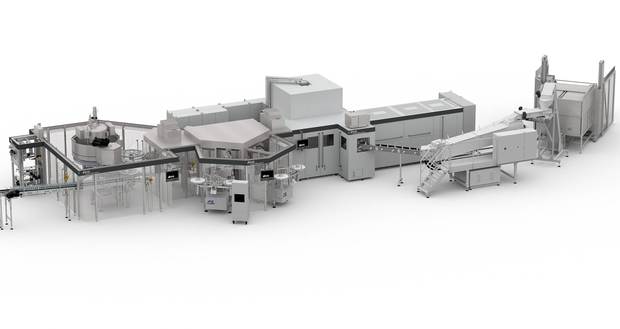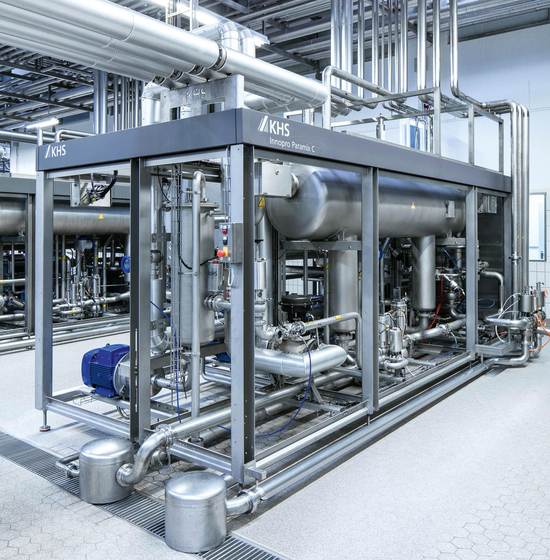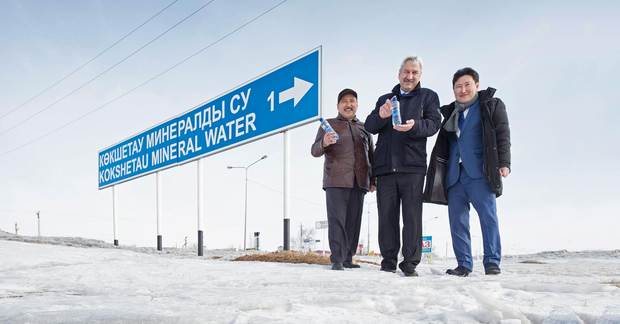Situated in the Indian Ocean about 900 kilometers east of Madagascar, Mauritius is not only famous for its wonderful sandy beaches and turquoise lagoons but also for the Mauritius Post Office two-penny blue. This extremely rare stamp, which collectors now pay a seven-figure sum for, made Mauritius the fifth country in the world to start using the postage stamp in 1847. What not many people know is that in some areas Mauritius still has a pioneering role. The country is heralded as one of Africa’s model democracies, for example, and with a per capita income far above the African average it serves as a model of economic success for the entire continent.
These qualities are largely down to the fact that after gaining independence in 1968 the former British colony very quickly established a textiles industry which liberated the country from its dependence on agriculture and sugar cane plantations. By adopting an attractive tax and customs policy the government has also managed to transform the capital of Port Louis into an international center of finance which draws many foreign investors and is now a hub for many African businesses.
Local success story
Companies from outside Africa are not the only successful enterprises in Mauritius, however. This is impressively demonstrated by Phoenix Beverages Limited or PhoenixBev, for instance, founded on the island in 1931 and now the biggest beverage producer in the country with a portfolio of over 100 brands and an annual output of about 1.5 million hectoliters. A total of over 1,300 people are employed at four bottling plants in Mauritius and Réunion. Its range includes beer – besides own brands such as Phoenix, Blue Marlin and Gister the company also bottles Guinness under license – wine and spirits and carbonated soft drinks, juice and water. PhoenixBev has also contract filled for Coca-Cola for almost 65 years.
The company feels especially committed to the issue of sustainability, applying this to as many areas as possible. PhoenixBev therefore not just focuses on resource-efficient production by implementing energy-saving measures and water recovery systems, for instance, but also takes into account in its portfolio that Mauritian consumers are becoming increasingly health conscious.
In this context you should know that the national beverage market is currently undergoing a period of change; unlike many others in the rest of Africa the Mauritians are becoming increasingly aware of issues which concern their health. They are buying less and less sweetened soda pop, instead attaching greater importance to natural soft drinks such as juice, tea and water.
In order to satisfy this demand, in 2016 PhoenixBev launched a new product: Fuze Tea produced for Coca-Cola under license, an iced tea with natural ingredients in lemon, peach and apple/lemon grass flavors. This is the first in a series of product innovations which will also include juices and energy drinks. “For us, this is a completely new product category which demands totally new processes,” explains Gerard Merle, senior manager of Non-Alcoholic Beverages and Civil Engineering at PhoenixBev, describing this particular challenge. “It’s also very difficult to judge the market and assess its potential.” This is expressed by the fact that the volume expected for Fuze Tea in its first year was realized within just two months of production startup – a huge success for the beverage bottler and a sure sign that consumers appreciate an especially healthy beverage being on offer. “Unlike other competitors in the PET segment we want to do completely without the usual preservatives required for cold filling,” emphasizes Merle. “This is why we’ve opted for hot filling – and are one of the first beverage producers on the island and indeed in the entire Indian Ocean to do so. And so that consumers can enjoy our products better, we want to supply them in bottles with a larger neck.”
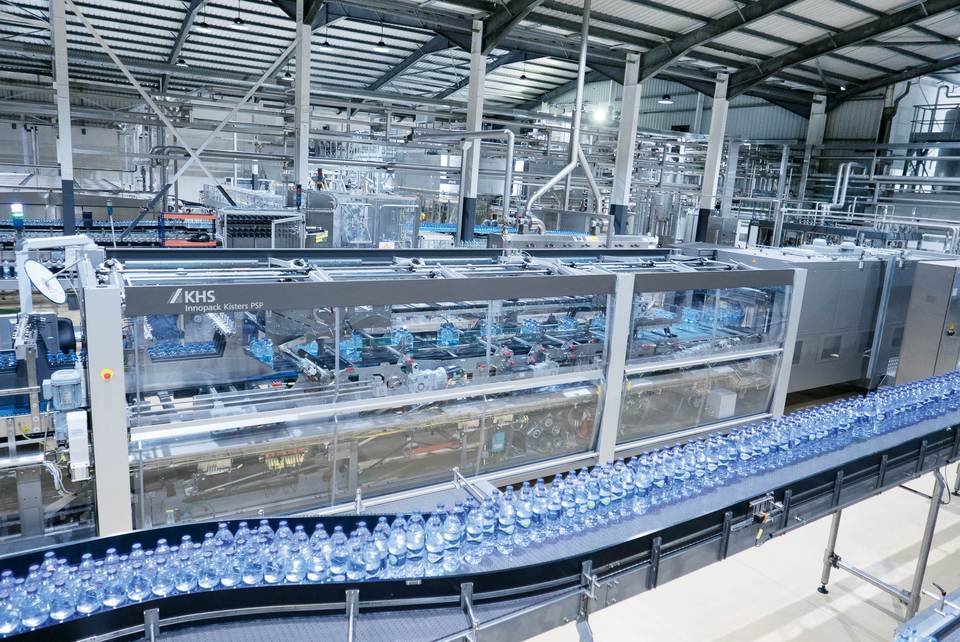
One line, two blocks
PhoenixBev is being assisted in the expansion of its range of products by KHS. In order to provide maximum flexibility, when equipping the completely new production site in Nouvelle France the company opted for one line with two blocks. Each of these has its own stretch blow molder and filler so that tea, juice and still water can be run on the line. “This means that PhoenixBev doesn’t have to convert the stretch blow molders when changing over from the 28-mm to the new 38-mm bottle neck and can switch from a hot fill product to water and vice versa more quickly,” is how Denise Schneider-Walimohamed, managing director of KHS East Africa, describes the most important feature of the new plant machinery.
Accurate dosing
Besides an InnoPET Blomax stretch blow molder and Innofill NV filler the hot fill block also has a syrup room and – thanks to an exclusive cooperation with Belgian company JBT Foodtech – a pre-filler for fruit chunks. This ensures that the fruit chunks in mango juice, for example, are perfectly dosed and distributed. This point in particular was also one of the criteria which cemented the partnership between PhoenixBev and KHS. “Our accurate and efficient dosing technology for fruit chunks is also seen by Coca-Cola to be the most efficient on the market – and that’s just one example of many of the excellent quality of the equipment KHS provides us with,” smiles customer Gerard Merle.
While the hot fill block has a capacity of up to 15,000 bottles per hour, the line output of the water block runs to 13,500 bottles an hour maximum. To satisfy the growing ecological demands of the Mauritian market a totally new bottle shape was designed for the company’s water, marketed under the name of Crystal. By using 18% less plastic, it helps to save resources and thus boosts economy. Thanks to a special twist mechanism it takes up less space once emptied and can be more easily recycled.
“Customers in Africa are increasingly calling for more flexibility,” explains Schneider-Walimohamed. “There’s a trend towards water also being filled on lines used for CSDs and/or juice. We’ve solved this problem extremely well with our turnkey line which with its relatively low capacity is just what PhoenixBev was looking for. Even if the line is one of the smallest we build, it’s an attractive concept and we can score on the energy and resource efficiency of our stretch blow molding technology, for example.” As this is the first hot fill project in the whole of East Africa, franchiser Coca-Cola is also closely watching the new line – even more so because the group is pushing the diversification of its franchise bottlers worldwide, especially with a view to juice.
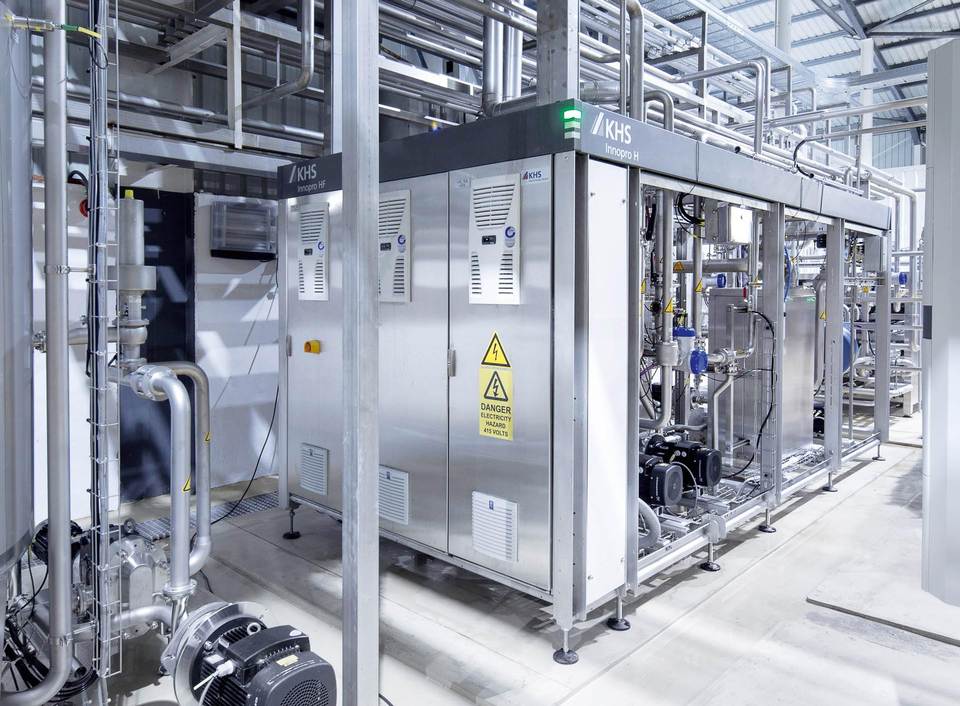
Well packaged
The line is supplemented by an Innoket 360 labeling machine. An Innopack Kisters PSP pad shrink packer packs both the hot fill products and the water while palletizing is done manually – for the time being at least. PhoenixBev is already thinking about adding a palletizer to the line. Should the company’s success persist as it has done thus far, capacities will soon have to be extended. “KHS has the right opportunities and can give us just the end-to-end systems we need,” states Gerard Merle. “These range from stretch blow molder through sugar dissolver, syrup room, hot fill pasteurizer and CIP system to turnkey packaging line – all according to the quality specifications of Coca-Cola.”
Merle is similarly enthusiastic about the new line’s degree of flexibility. “Hot filling gives us many options, especially regarding further products such as energy drinks. This is why we attached such great value to the versatility of the plant engineering.” He’s also extremely pleased with how smoothly everything has gone. “During the entire cooperation on this project we were given flexible, extremely solution-oriented support by KHS, from planning through installation to commissioning. The product was simply right first time. We were able to sell everything we produced during commissioning on the market.” The new KHS line for PhoenixBev is thus one more good example of the immense creation of value that we rightly associate with the name “Mauritius”.
“The product was right first time. We were able to sell everything we produced during commissioning.”
Your contact on this topic
Denise Schneider-Walimohamed
Managing director
KHS East Africa Ltd.
Phone: +254 733 611 253
Email: denise.schneider-walimohamed@khs.com























